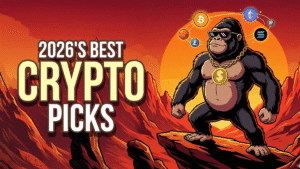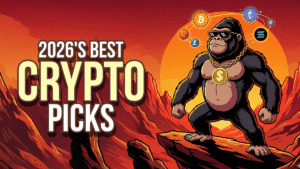
U.S. Senate Banking Committee Updates Crypto Market Structure Bill
- The updated crypto regulation draft aims to clarify asset treatment.
- Includes prominent senators like Scott and Lummis.
- Potential impact on BTC and ETH market dynamics.
The Senate Banking Committee released an updated draft crypto market structure bill under the leadership of Senators Tim Scott, Cynthia Lummis, and Bill Hagerty, shaping U.S. digital asset regulation.
The bill clarifies definitions between securities and digital commodities, potentially influencing crypto asset classifications and market structures, but is yet to impact major institutional capital flows.
The Senate Banking Committee has issued an updated draft of the crypto market structure bill, which aims to redefine the regulatory framework for digital assets. This update brings potential changes to the crypto market, with possible impacts on BTC and ETH dynamics.
Senate Moves Towards Clearer Regulations
The Senate Banking Committee has issued an updated draft of the crypto market structure bill, aiming to redefine the regulatory framework for digital assets. This development involves restructuring regulations impacting major cryptocurrencies and related altcoins.
Primary figures include Senator Tim Scott, Cynthia Lummis, and Bill Hagerty, noted for their involvement in fintech and crypto legislation. Their focus is on soliciting public feedback before finalizing the regulatory guidelines.
Impact on Market and Regulation Perceptions
The release influences regulatory perceptions among individuals and institutions potentially increasing market participation. Some predict reduced legal uncertainty for mainstream financial entities venturing into cryptocurrency markets.
Financially, the draft could alter investment flows as distinctions between securities and digital commodities are emphasized. Exemptions for NFTs from securities regulations might lead to market shifts in that area, with insights suggested by the SEC’s framework for analyzing digital asset investment contracts.
Enhancing Protections and Addressing Volatility
Developments suggest enhanced developer protections, reducing federal compliance burdens. Such measures are lauded by crypto proponents seeking innovation without stifling regulations. Amanda Tuminelli, General Counsel at DeFi Education Fund, mentioned, “The new market structure draft from Senate Banking has the best developer protections language we have seen to date. Still digging into the rest of the bill, but this is worth celebrating immediately.”
Observable historical patterns point to volatility around similar bills, with ETH and BTC typically experiencing notable market responses. Future rulemaking by the SEC and CFTC will shape long-term regulatory impacts.






